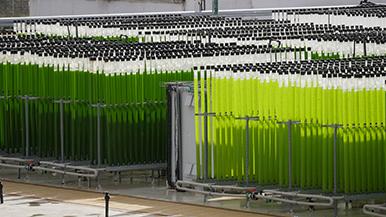Seminario - Biotecnologie e Bioscienze - Martedì 7 maggio 2024, 16:30, edificio U3-BIOS, aula U3-05
Ioannis Pavlidis, Department of Chemistry, University of Crete
Abstract

In the last two decades global aquaculture of algae has experienced an increase, whereas the cultivation reached 36 million tons in 2020, making the production of macroalgae a 16.5 billion USD industry. The high biomass of macroalgae can be exploited to produce food, feed, fertilizers, nutraceuticals, cosmetics, pharmaceuticals and biofuels. Seaweeds are rich in polysaccharides and other high value products and an efficient way to gain access to these products are polysaccharide-degrading enzymes from the marine microbiome. Macroalgal carbohydrates are new to industry and, therefore, there is a lack of such enzymes on this field. Hence, in our laboratory we focus our attention on discovering novel robust, thermophilic enzymes originating from the metagenome of marine microorganisms living in extreme environments. Via the collection of Hellenic Centre for Marine Research, we have access to metagenomic libraries from the Santorini volcanic complex of the Hellenic Volcanic Arc, Aegean Sea. This volcanic system is characterized by high temperatures (of up to 220°C in chimneys emitting fluids), high concentrations of heavy metals and low pH values. Herein, we present a methodology on identifying polysaccharide-degrading enzymes, namely laminarinases and alginate lyases, of industrial interest with unique properties.
Ospite: Lotti, Marchetti
Il seminario è APERTO a tutti.
tags: #BtBsSeminar , #LottiLab_BtBs , #BtBsUNIMIB , #BtBsSeminars